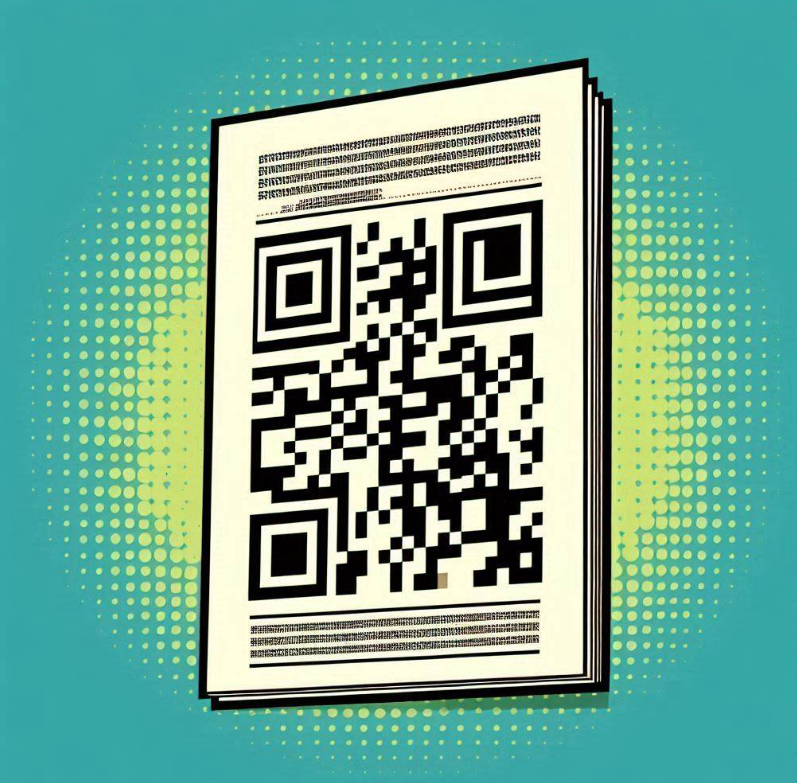- Why Use a QR Code for a PDF?
- Creating a QR Code for a PDF
- Frequently Asked Questions: Embed Your PDF as QR Code in Few Simple Steps
Need to share a PDF quickly and easily? Creating a QR code for your PDF allows anyone to access your document with a simple scan. Whether it’s for a product brochure, resume, or event schedule, this guide will walk you through the steps to generate a QR code and make your content more accessible.
Why Use a QR Code for a PDF?
Instead of sending large email attachments or links, a QR code directs users straight to your document. Here are some key benefits:
- Convenience: No more typing long URLs. Just scan the code!
- Speed: QR codes make accessing files quick and seamless.
- Professionalism: Great for sharing brochures, portfolios, or presentations.
- Versatility: You can print QR codes on business cards, posters, or any physical material.
When it comes to PDFs, countless types of documents can benefit from being shared via a QR code. Here are a few examples:
-
Brochures
Whether for promoting a product, service, or event, linking a PDF brochure via a QR code allows your audience to access detailed information easily without carrying printed copies.
-
Resumes or Portfolios
Instead of handing out bulky paper resumes, you can create a QR codethat links to your PDF resume or portfolio, making it easier for potential employers to access and share digitally.
-
Instruction Manuals
If you sell products, embedding a QR code on packaging that links to a PDF instruction manual can simplify the unboxing experience for your customers.
-
Event Schedules
For conferences, workshops, or events, a QR code that leads to a detailed schedule or itinerary in PDF format can help keep your attendees informed without requiring printed handouts.
-
Restaurant Menus
Many restaurants are now using QR codes to link to digital versions of their menus. A PDF version allows customers to view the menu on their phones with ease.
-
Presentations and Reports
If you’ve delivered a presentation or compiled a report, a QR code can direct colleagues or clients to a downloadable PDF version for future reference.
-
eBooks or White Papers
If you are a content creator and business who wishes to share their written content, a QR code can link to downloadable PDF versions of eBooks or white papers, allowing readers quick access.
-
Certificates
If you have certificates of completion for courses, training, or events, a QR code linking to the PDF version can make it share with anyone you wish to.
-
Catalogs
You can share your product catalog in a PDF via a QR code, allowing potential customers to browse your offerings at their convenience.
-
Coupons or Flyers
Creating digital versions of coupons or promotional flyers as PDFs and sharing them via QR code can help boost your marketing efforts without the need for printing and distribution.
Creating a QR Code for a PDF
There are two ways of creating a QR Code for a PDF and the first one is my go-to, because I do not have to navigate to multiple websites to generate just one qr-code and then manage it.
Create a QR Code for a PDF using Tiiny.Host
There are four simple steps that you have to follow as soon as you open Tiiny.Host
- Upload your PDF file
- Give a “link-name” or leave it blank
- Login or Sign-Up and Hit Publish
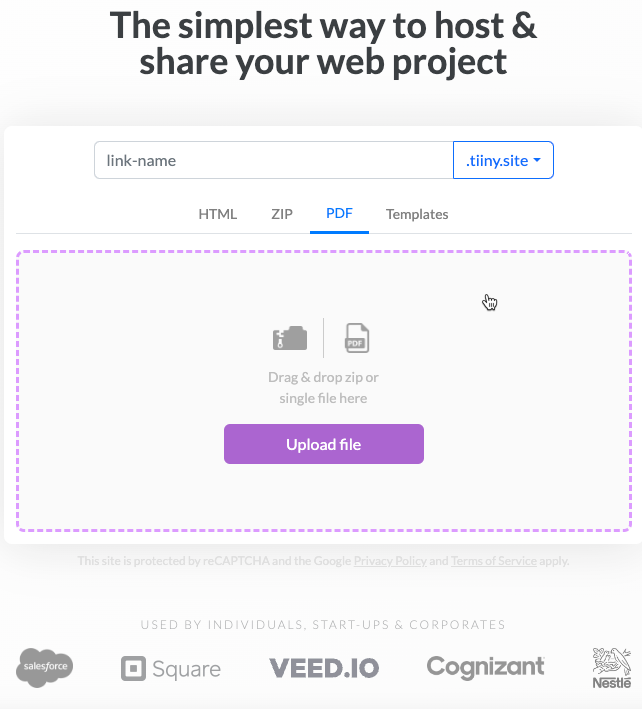
And your PDF is hosted, just navigate to the dashboard and you can see “View QR Code” button clicking on which you will have the QR code for your file which you can download and share anyone.
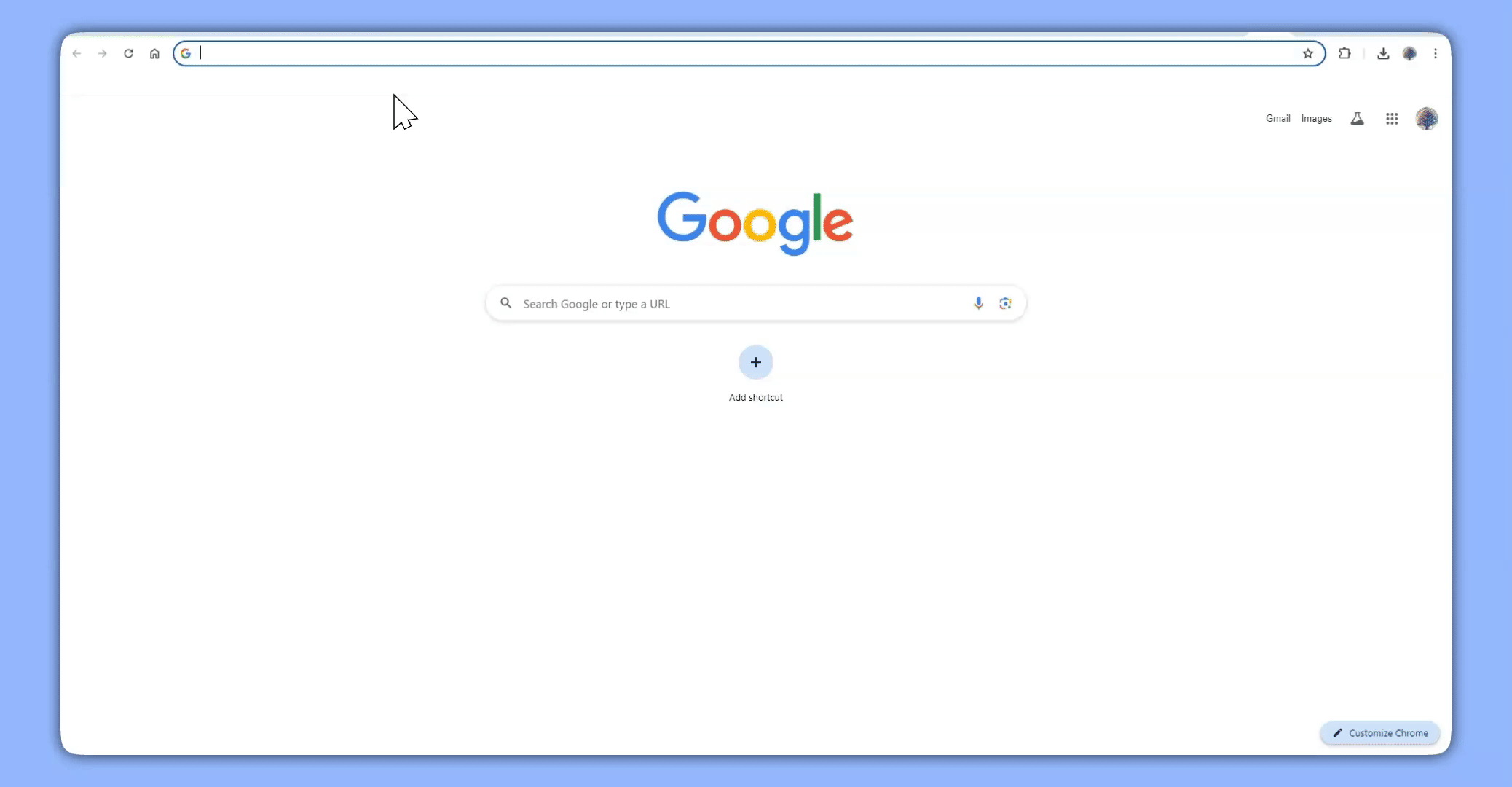
A big advantage with Tiiny is that you can directly share the link to the PDF and Tiiny also provides features like Editing in PDF on browser itself, connecting a custom domain, password protecting your PDF and tracking analytics with an upgrade to the professional plan.
Create a QR Code for a PDF Using Cloud Storage
Step 1: Upload Your PDF to a Cloud Storage
First, you’ll need a shareable link for your PDF. This can be done by uploading the PDF to a cloud storage platform like Google Drive, Dropbox, or OneDrive.
Upload your PDF file and then right-click on the file, select “Get Link,” and make sure the sharing settings allow anyone with the link to view it.

You can follow the similar steps for other platforms like Dropbox or OneDrive.
Step 2: Use a QR Code Generator
Once you have the PDF link, the next step is to create the QR code. There are several free and easy-to-use QR code generators online, for which you can search for on any browser. There are some additional steps you will have to follow when you use the QR code generator.
- Go to the QR code generator website.
- Select “URL” or “Link” as the type of content.
- Paste the link to your PDF in the appropriate field.
- Customize the appearance of your QR code (optional) by adjusting colors, shapes, and adding logos.
- Click “Generate” or “Create QR Code.”
Test and Share Your QR Code
After generating your QR code, download it in a high-resolution format like PNG or SVG, especially if you plan on printing it. Once downloaded:
Test the QR code using your smartphone’s camera or a QR code scanning app. Ensure it opens the PDF correctly and that the file is accessible.
For example, you can scan the following QR code to check the PDF hosted on Tiiny.
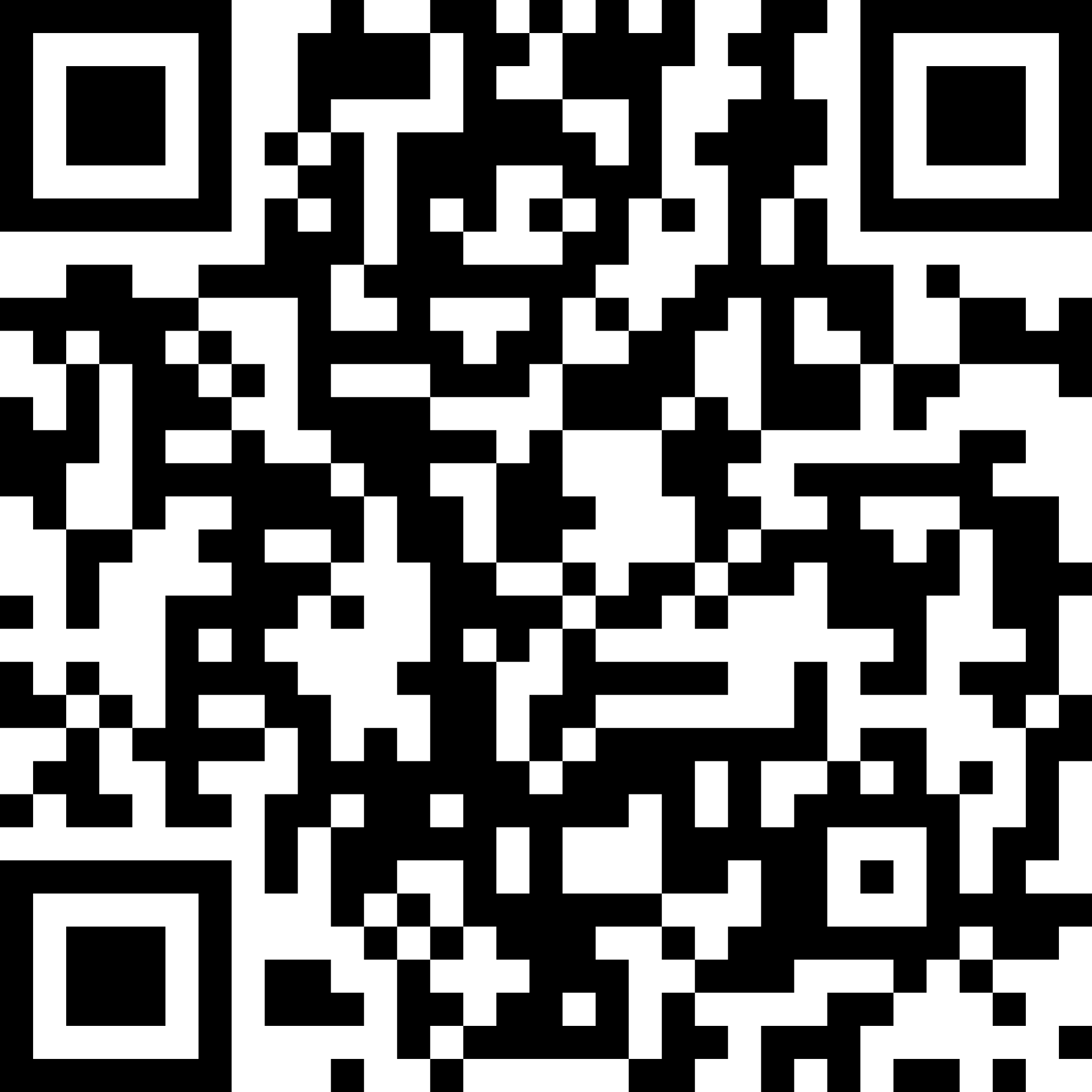
Now that your QR code is ready, you can incorporate it into various media:
Where Can You Add Your QR Code?
QR codes can be used in various contexts to make accessing your PDF convenient for your audience. Here are some great places to add your QR code:
-
Business Cards
Include a QR code on your business card so that clients or colleagues can quickly access your resume, portfolio, or company brochure.
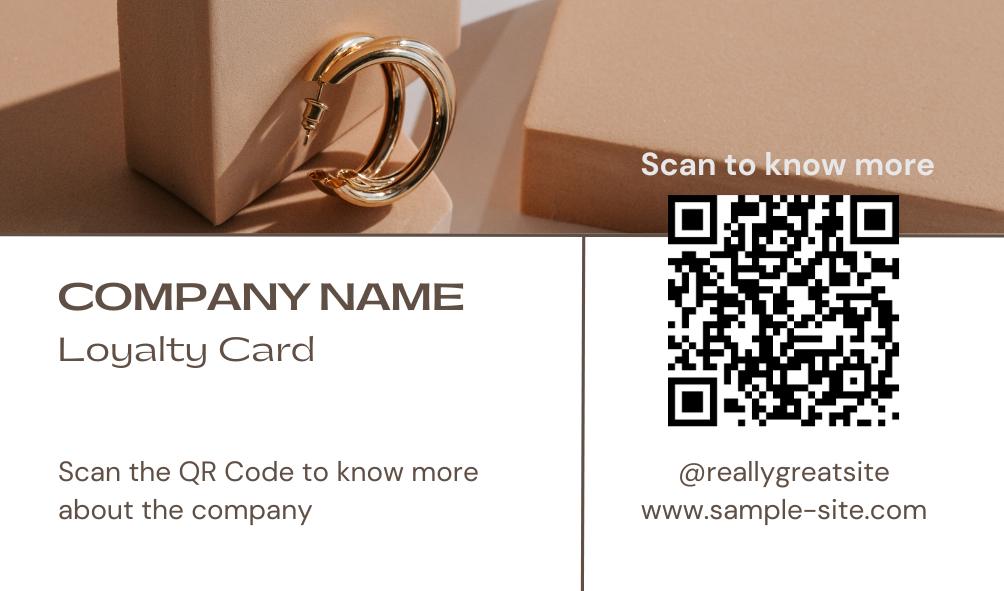
-
Posters and Flyers
QR codes on event posters or promotional flyers are a great way to provide additional information, such as event schedules, registration forms, or detailed product specs, without cluttering the design.
-
Brochures and Product Packaging
Embedding a QR code on brochures or packaging can allow customers to access more detailed instructions, tutorials, or warranty information. It keeps your printed materials minimal and to the point.
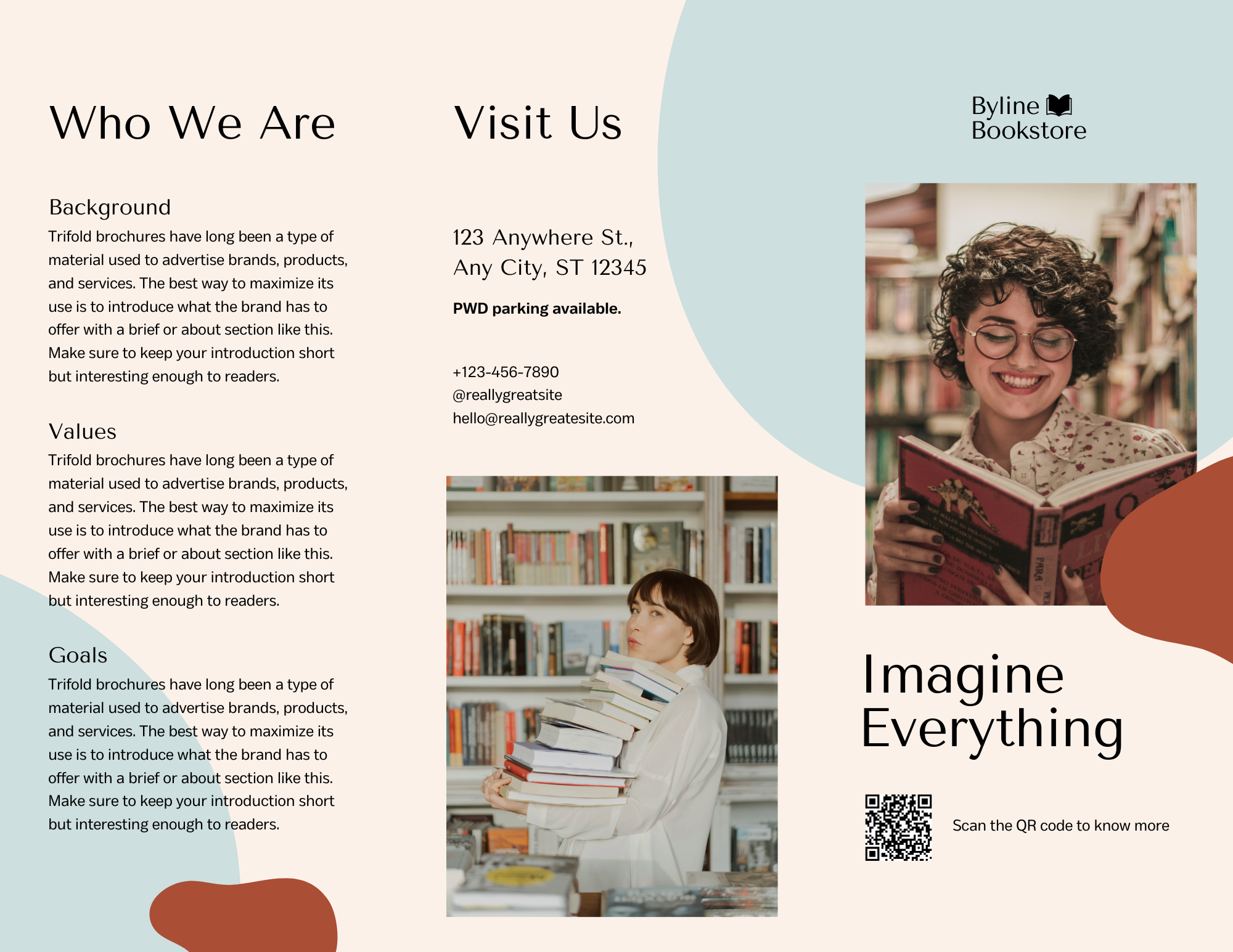
-
Presentations and Slideshows
Instead of sending bulky files after a presentation, include a QR code on the last slide that leads to your PDF summary or additional resources.
-
Emails and Newsletters
QR codes can enhance email marketing campaigns by providing quick access to product guides, case studies, or exclusive downloadable resources.
-
Social Media Posts
Make it easy for your audience to access your PDF from platforms like Instagram, LinkedIn, or Twitter by sharing a QR code in your posts. It’s especially useful for mobile-first audiences.

-
Event Invitations and Tickets
If you’re organizing an event, you can add a QR code to the invitation or tickets so attendees can easily access details like the event agenda, location map, or RSVP link.
-
Advertisements
Whether it’s a newspaper ad, billboard, or digital ad, a QR code provides an easy way for users to explore more information, download brochures, or claim discounts.
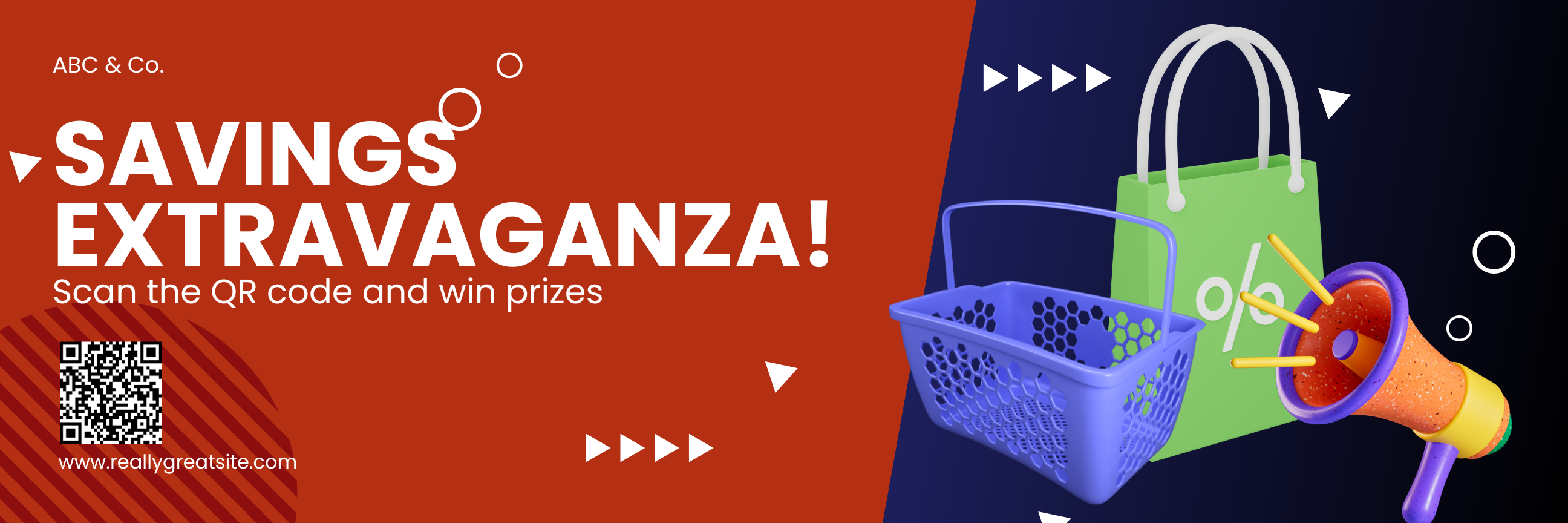
Best Practices for Using QR Codes
- Ensure Easy Access: Make sure your PDF is accessible without requiring a login, especially if it’s meant for public use.
- Position the QR Code Correctly: Ensure the QR code is large enough to scan easily and is placed in an area with good visibility.
- Add Instructions: If your audience might not be familiar with QR codes, add a small note like “Scan to View PDF” near the code.
Frequently Asked Questions: Embed Your PDF as QR Code in Few Simple Steps
Can I edit the content of the PDF after creating the QR code?
Once the QR code is created, any changes you make to the PDF won’t affect the QR code as long as the file remains in the same location and link. If you need to update the PDF, ensure the new version is uploaded to the same location.
Can I track how many people scanned my QR code?
Yes, Tiiny’s pro plan and some premium QR code generators provide analytics features that let you track the number of scans and where they occurred. If you need detailed metrics, you may need to upgrade to a paid plan.
Is it safe to share confidential documents through a QR code?
It depends on the privacy settings of your document and the hosting platform. If you’re sharing sensitive information, ensure that the PDF is password-protected or hosted on a platform with restricted access.
Can I add multiple PDFs to one QR code?
No, a standard QR code can only direct to one file or link. However, you could create a landing page that hosts multiple PDF links and use a QR code to direct users to that page.
What happens if someone scans my QR code on a low-resolution screen?
As long as the QR code is clear and not pixelated, it should work even on lower-resolution screens. However, blurry or low-quality codes can result in scanning errors, so make sure the QR code is generated and displayed clearly.

